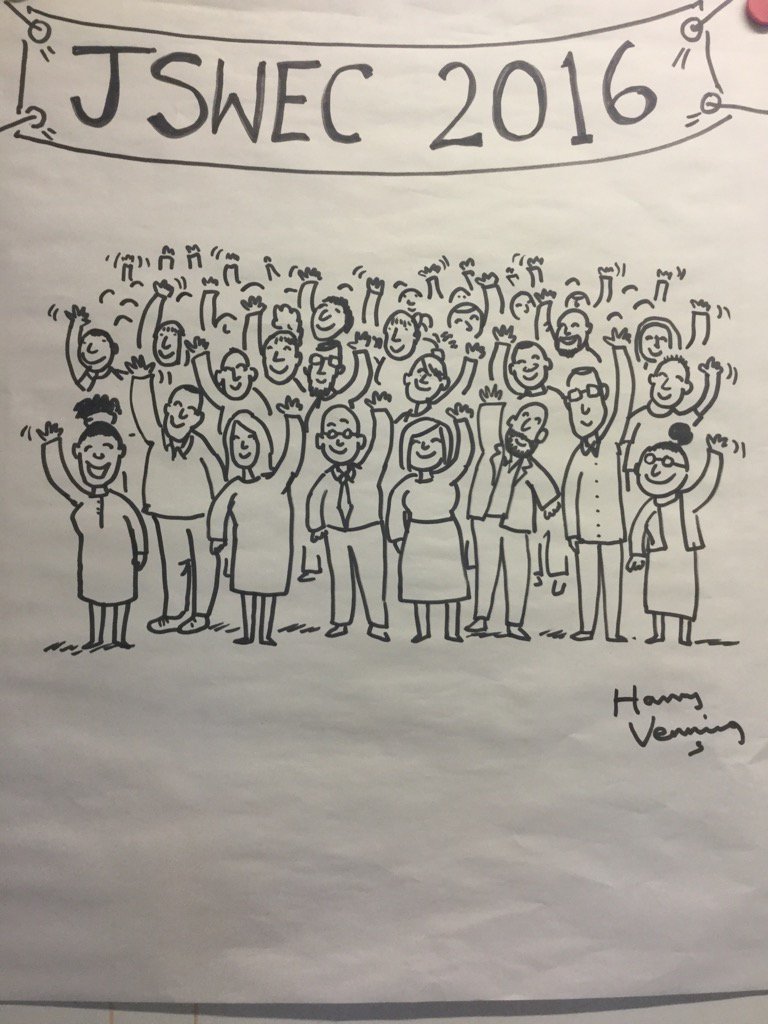Our first team conference! JSWEC – the UK Joint Social Work Education and Research Conference – was held this year at The Open University in Milton Keynes so my 3 days of attendance simply involved driving to my usual place of work. The conference theme was ‘Celebrating that which unifies us: Global and UK perspectives on generic social work education, research and practice’ and it was attended by social work lecturers and researchers from around the world with plenaries by Prof Walter Lorenz and Prof Jim McGoldrick. You can read more on the theme and overall programme here: http://jswec.net/2016/
For me, the conference was a great opportunity to learn more about social work research and practice. Here are some points I took away from JSWEC for further thought (and these are simply snippets….):-
• Social work is often viewed as a ‘western product’ in which formalisation leads to accountability, says Shareen Hussein (Kings College London) in a discussion of ‘global social work’. The main challenge to transnational social work is immigration policies.
• Social workers need to be both ‘competent technicians’ and ‘critical thinkers’ who are able to innovate, say Lynda McDonald and Jason Loffman from Manchester Metropolitan Uni. However, many social workers do not feel they have sufficient agency to be creative in the tasks they carry out – instead, their priority is simply survival
• Fromm’s (1976) work on ‘being’ versus ‘having’ is a useful frame of reference, argues Mike Thomas (Univ of Kent). The ‘being’ view describes social work as a transformative field of education in that it changes the way students see the world. This view contrasts with the ‘having’ view of social work education socialising practitioners into practice.
• Juliet Koprowska from York commented that admin teams often have far more experience in ICPCs (Initial Child Protection Conferences) than social workers, and can help to contribute to a sense of calmness in the room. Her research found that the role of the chair was also important in setting up a good atmosphere.
• Gemma North from Sussex found that it’s far better if reflective supervisions are not related to bureaucratic accountability but exist to support engagement in reflective practice. And peer support groups work a lot better in an office set up that supports teamwork (see our blogpost on hotdesking…)
• A project in the PRC (Louise Brown from Bath Uni) found that Family Group Conferencing worked well as an alternative to profession-dominated decision making. In the PRC there is generally little stigma attached to accessing professional support, whereas families may experience a loss of face if they ask the extended family for help.
While there were no presentations focusing on writing (other than our WiSP one), I learned a lot about the contexts in which social workers are writing and came away with theories and contacts to follow up on.
With thanks to @HarryVenning for the cartoon from his Twitter feed.

Comments
No comment